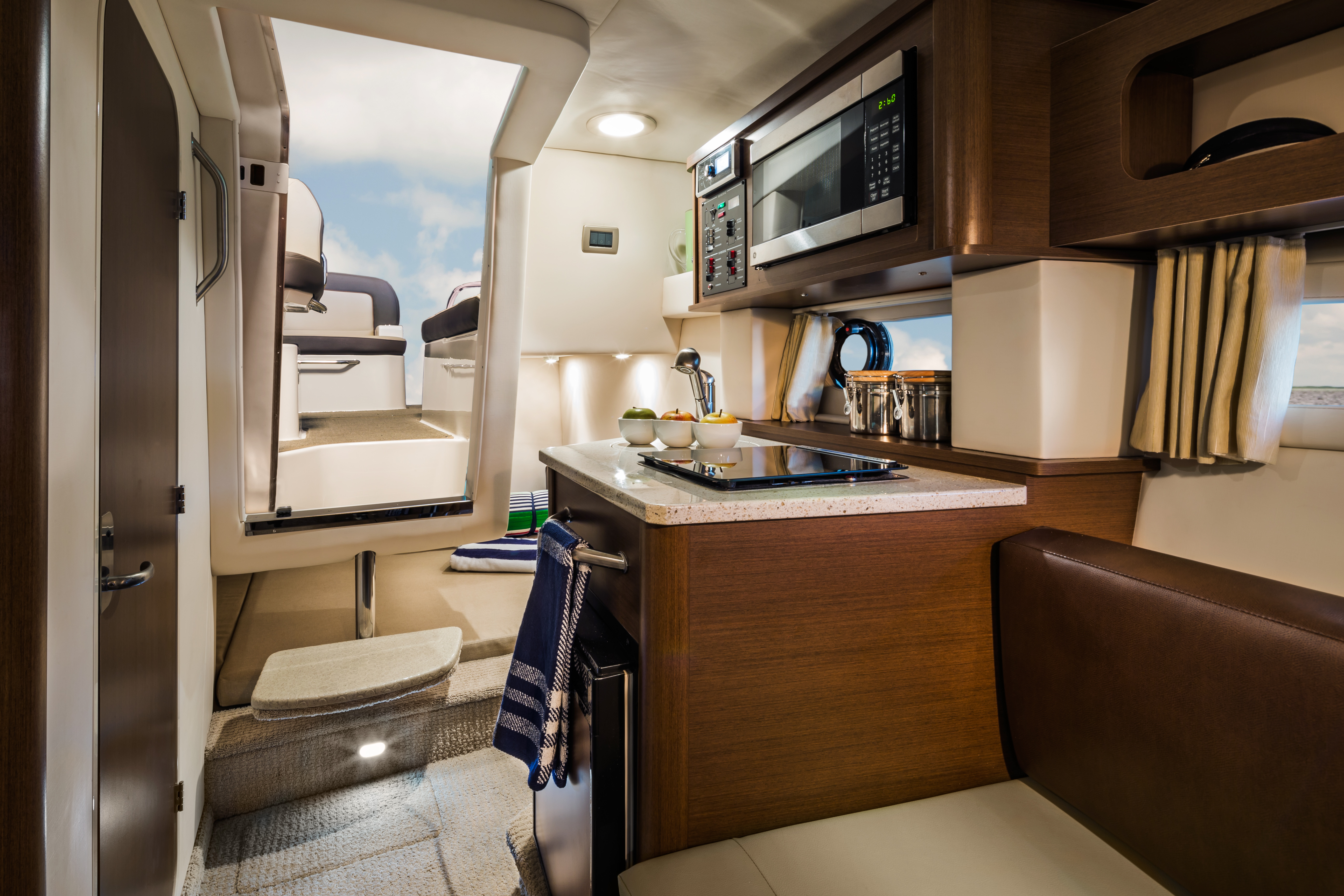The biggest surprise for boat owners is the extent to which mold and mildew develops in a boats interior. Preventing this growth, the boats interior should be thoroughly cleaned, and ventilation should be provided to allow good air circulation.
Properly cleaning the boat includes removing as much as possible from it. The less there is on a boat, the less there is to attract mildew. Clothing, foul weather gear, shoes, books, charts, paper goods, leather, bedding curtains, food stuffs, first aid supplies, odds and ends, etc., should be taken home. They’re all fertile soil for mildew, as is dirt, grease, soap scum, etc.
Then you have to vacuum, scrub and polish every surface, especially galley and head surfaces. Best to use a polish that leaves a protective coating on which it’s hard for mold to get a foothold. Especially mildew-preventive sprays are available for carpets and furniture. The cleaner and more highly polished the inside gets, the less likely it is you’ll find mold.
You will find cleaners and polishes specifically for boats in marine stores. Many people find that household products do a fine job too. It’s the “elbow” grease that counts!
The more freely air can circulate in the interior of your boat the less conditions will be for the growth of mold. Openings or vents at each end near the top can be fashioned to let air in. Flaps or stovepipe elbows can be used to keep rain out. Hatches and windows can then be left partially open. Visiting your boat on dry, sunny days and opening it up as much as possible is a great way to let fresh air in.
The best way to protect your navigation and communications systems from deteriorating is to remove it from your boat. Wrap them in towels, not plastic, and take them home.
The electronic equipment should also be removed to keep them safe and to keep cold and dampness from affecting them. Antennas should also be stored in a safe, dry place to protect them from both the elements and accidental damage.
Before storing your electronic equipment, clean off the terminals and the connecting plugs and spray them with a moisture-displacing lubricant that’s intended for use on electronics. All terminal blocks, junction blocks, fuse holders and the back of electrical panels should be cleaned and sprayed with an appropriate protectant. Anything that could be easily stolen, such as anchors, flare guns, binoculars, etc., is best taken home.


